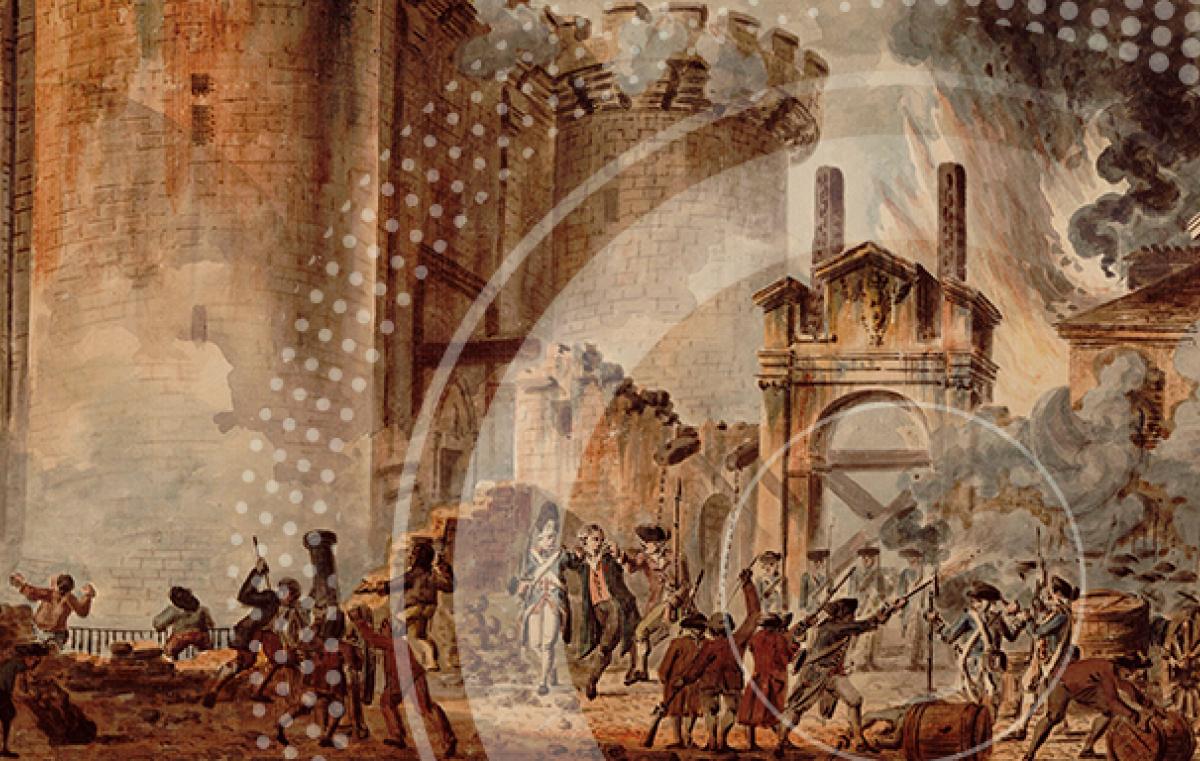Bastille Day
Bastille Day, marked on July 14, was a major event of the French Revolution. Prof. Silvia Adler explains its significance

Known in France as "The National Holiday" (Fête Nationale), Bastille Day is a French national holiday commemorating the storming of the Bastille on July 14, 1789, a major event of the French Revolution. Professor Silvia Adler, of Bar-Ilan University's Department of French Culture, explains the events that competed for the title of national holiday and what attracted the revolutionaries to the Bastille.
Some 90 years after the fall of the Bastille, the new Republic sought a date on which to celebrate a national holiday and settled on July 14; however, the law declaring the holiday didn't explicitly note a year. The date can therefore refer to two different events: the fall of the Bastille, which occurred on July 14, 1789, and is important to the republicans; or the Festival of the Federation (Fête de la Fédération), which occurred on July 14, 1790, and is important to the conservatives.
August 4, 1789, a major date during the French Revolution on which feudalism was abolished by the National Assembly, also emerged as a strong competitor for the date of the national holiday. Nevertheless, July 14 tipped the scales as it symbolized both the end of the absolute monarchy via a determined and bloody struggle (fall of the Bastille) and an event of unity and national hope (Fête de la Fédération).
As revolutionaries were storming the Bastille in 1789 during the reign of King Louis XVI, France was at the height of a prolonged and severe economic crisis that corroded its socio-economic resilience. Drought, unemployment, and heavy taxes created frustration that led to action. The common people, associated with the Third Estate, severed ties with the Estates General that did not represent its interests. They formed the National Assembly, which later became the National Constituent Assembly as members from other Estates joined them.
But the euphoria didn’t last long. On July 11, 1789, after popular Finance Minister Jacques Necker was dismissed, the masses began rioting in the streets and at strategic locations such as the Palais-Royal. The revolution gained momentum in the following days, leading to the storming of the Bastille.
The Bastille was an infamous prison but only held a handful of prisoners at the time of its storming – so why did the revolutionaries target it? The reason was a pragmatic one: weapons were needed to effectively fight against the monarchy, and the Bastille – a former military fortress turned prison – housed cannons, and more importantly, gunpowder that could be used to arm the weapons that the revolutionaries seized from the Hôtel des Invalides earlier that day.
Without detracting from the mythical nature surrounding the event, we can conclude by saying that two significant events occurred on July 14, which is why in France the holiday is referred to as "The National Holiday".